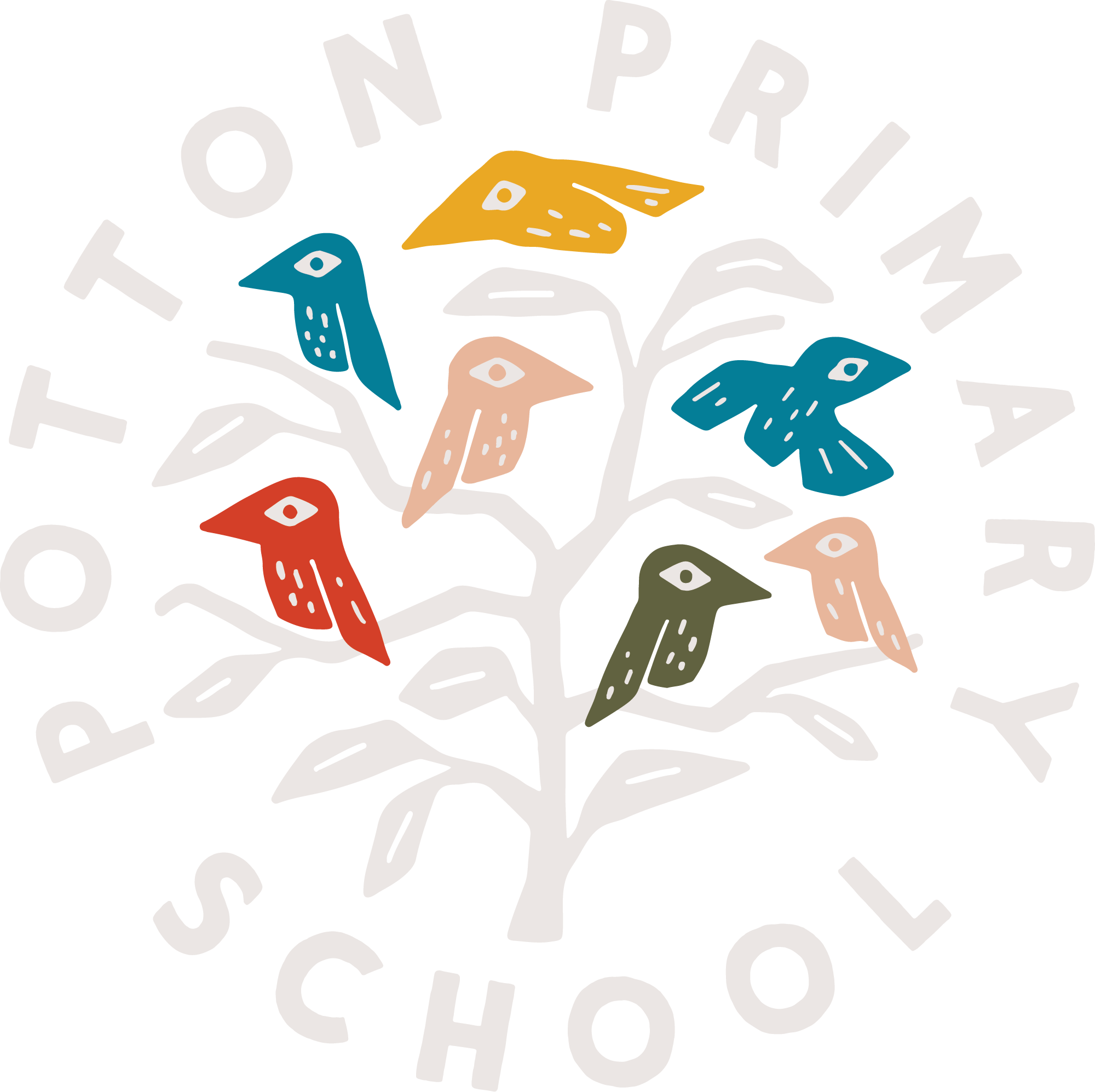Ethos & Values
Relationships are very important to us and the relationships we develop with our children, their families; our community and the wider world enable us to create a warm, caring and happy ethos where everyone is welcome.
Our priority is the happiness of our pupils, within our school there is a common sense of being involved, supported and successful. The happy child is likely to be the most fulfilled, and we want pupils above all to enjoy their time with us. Learning itself should be challenging and stimulating. We are unashamedly demanding in our academic standards; we firmly believe that there is no ceiling on achievement and that every child can achieve their true potential.
Vision Statement
Potton Primary School exists to provide outstanding educational opportunities to the children of Potton and the surrounding villages from the age of 4 through to 11 years. We have a fully inclusive approach where progress is celebrated, and the whole child is valued.
We will do this through strong leadership, effective governance, outstanding teaching and shared learning.
Equality in school
What is Equality and Diversity?
Equality and diversity, or multiculturalism, is the idea of promoting and accepting the differences between people. More specifically, equality is about ensuring individuals are treated fairly and equally, no matter their race, gender, age, disability, religion or sexual orientation. Diversity is about recognising and respecting these differences to create an all-inclusive atmosphere.
Promoting equality and diversity at the Potton Federation is essential for both teachers and pupils. The aim is to create a whole school environment where all pupils can thrive together and understand that individual characteristics make people unique and not ‘different’ in a negative way.
How can equality and multiculturalism be promoted at school?
Promoting equality and diversity in school need not be a challenge and is something that all children should be familiar with from an early age. This means:
- Setting clear rules in regards to how people should be treated.
- Challenging any negative attitudes.
- Treating all staff and students fairly and equally.
- Creating an all-inclusive culture for staff and pupils.
- Avoiding stereotypes in examples and resources.
- Using resources with multicultural themes.
- Actively promoting multiculturalism in lessons.
- Planning lessons that reflect the diversity of the classroom.
- Ensuring all pupils have equal access to opportunities and participation.
- Making sure that learning materials do not discriminate against anyone and are adapted where necessary, e.g. large print or audio tape format.
- Using a variety of teaching methods.
- Using a variety of assessment methods.
- Ensuring policies and procedures don’t discriminate against anyone.
